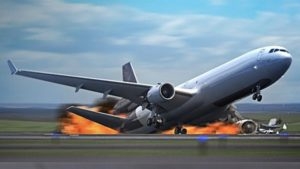The strength of one army or another depends not only on the size, but also on the state’s latest developments in the field of military engineering, on the nuclear potential of the state and on the control system for the actions of military units. The presence of a powerful army was and remains an important lever of influence in the international arena.
Today we offer ranking of world armies for 2013 according to RBC, which included 7 countries with the most powerful and combat-ready military forces.
Attention! The material is out of date. Read the current rating of the armies of the world. The list of the strongest troops is now updated annually.
7. Turkey (army strength - 613 thousand people, reserve - 429 thousand)
 The outpost between Europe and Asia should historically have authority, including military. Therefore, the strength of the Turkish armed forces exceeds the army of any European country. True, the main danger to the state is not at all external enemies, but Kurdish separatists. It is with them that almost all military clashes of recent years have occurred. Turkey is among the world leaders in the presence of air defense systems. The country does not officially have nuclear weapons.
The outpost between Europe and Asia should historically have authority, including military. Therefore, the strength of the Turkish armed forces exceeds the army of any European country. True, the main danger to the state is not at all external enemies, but Kurdish separatists. It is with them that almost all military clashes of recent years have occurred. Turkey is among the world leaders in the presence of air defense systems. The country does not officially have nuclear weapons.
6. India (army strength - 1 million 325 thousand people)
 The ongoing confrontation between India and Pakistan leads to an inevitable increase in army size and military spending. The Indian army is the third largest in the world after the United States and China. The armed forces are staffed on a voluntary contract basis. The country has at least five dozen nuclear warheads. Among the developments of the Indian military industry is the Agni-V intercontinental ballistic missile, capable of carrying a warhead up to a distance of 6 thousand kilometers.
The ongoing confrontation between India and Pakistan leads to an inevitable increase in army size and military spending. The Indian army is the third largest in the world after the United States and China. The armed forces are staffed on a voluntary contract basis. The country has at least five dozen nuclear warheads. Among the developments of the Indian military industry is the Agni-V intercontinental ballistic missile, capable of carrying a warhead up to a distance of 6 thousand kilometers.
5. North Korea (army strength - 1 million 106 thousand people)
 The deplorable state of the country's economy does not allow allocating significant funds for the maintenance of the army. Therefore, the budget of the armed forces of Korea is the smallest among all participants in the ranking of world armies for 2013, only 5 billion dollars. In addition to the main staff, 8 million reservists are constantly ready to call into operation. Most of the troops are concentrated on the border with South Korea. North Korea conducted its first nuclear weapons test in 2006. Today, the country's arsenal has up to 10 warheads.
The deplorable state of the country's economy does not allow allocating significant funds for the maintenance of the army. Therefore, the budget of the armed forces of Korea is the smallest among all participants in the ranking of world armies for 2013, only 5 billion dollars. In addition to the main staff, 8 million reservists are constantly ready to call into operation. Most of the troops are concentrated on the border with South Korea. North Korea conducted its first nuclear weapons test in 2006. Today, the country's arsenal has up to 10 warheads.
4. Russia (army strength - 1 million 200 thousand people)
 The power of the Russian army is largely determined by the country's nuclear potential; the Russian Federation has at its disposal about 11 thousand warheads, as well as advanced delivery vehicles. Russia's defense budget is $ 56 billion. The United States spends 692 billion, China - 100 billion. The last serious armed clash involving the Russian army was the armed conflict in South Ossetia with the Georgian military in 2008.
The power of the Russian army is largely determined by the country's nuclear potential; the Russian Federation has at its disposal about 11 thousand warheads, as well as advanced delivery vehicles. Russia's defense budget is $ 56 billion. The United States spends 692 billion, China - 100 billion. The last serious armed clash involving the Russian army was the armed conflict in South Ossetia with the Georgian military in 2008.
3. Israel (army strength - 176.5 thousand people, reserve - 565 thousand people)
 A distinctive feature of the smallest army in the ranking for 2013 is the presence of women who serve without fail for 24 months. The term of service for men is 36 months. In the ranking of world armies for 2013, Israel leads in defense spending per capita - about 2 thousand 400 dollars. Officially, the country does not have nuclear weapons, but it is estimated that between 80 and 200 warheads may be at the disposal of Israel.
A distinctive feature of the smallest army in the ranking for 2013 is the presence of women who serve without fail for 24 months. The term of service for men is 36 months. In the ranking of world armies for 2013, Israel leads in defense spending per capita - about 2 thousand 400 dollars. Officially, the country does not have nuclear weapons, but it is estimated that between 80 and 200 warheads may be at the disposal of Israel.
2. China (army strength - 2 million 285 thousand people)
 The main resource of China is people, the country's army is the largest in the world. However, the state is systematically developing the defense industry, moving from simply copying Western models to the development and production of its own equipment. The army is equipped on a draft basis and on a contract basis. China's defense budget is the second largest in the world. The country's nuclear potential has about 200 warheads.
The main resource of China is people, the country's army is the largest in the world. However, the state is systematically developing the defense industry, moving from simply copying Western models to the development and production of its own equipment. The army is equipped on a draft basis and on a contract basis. China's defense budget is the second largest in the world. The country's nuclear potential has about 200 warheads.
1. USA (army size - 1 million 478 thousand people)
 By the total number of nuclear warheads, the country leading in ranking of world armies for 2013, only slightly inferior to Russia. And intercontinental ballistic missiles at the disposal of the US military allow carrying warheads to a distance of 15 thousand kilometers. The United States has an unprecedentedly large defense budget, 12 times the Russian army spending.
By the total number of nuclear warheads, the country leading in ranking of world armies for 2013, only slightly inferior to Russia. And intercontinental ballistic missiles at the disposal of the US military allow carrying warheads to a distance of 15 thousand kilometers. The United States has an unprecedentedly large defense budget, 12 times the Russian army spending.












